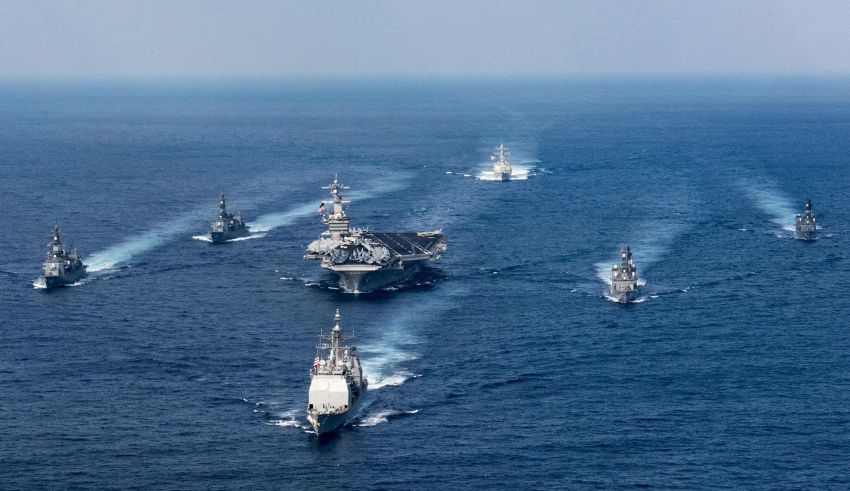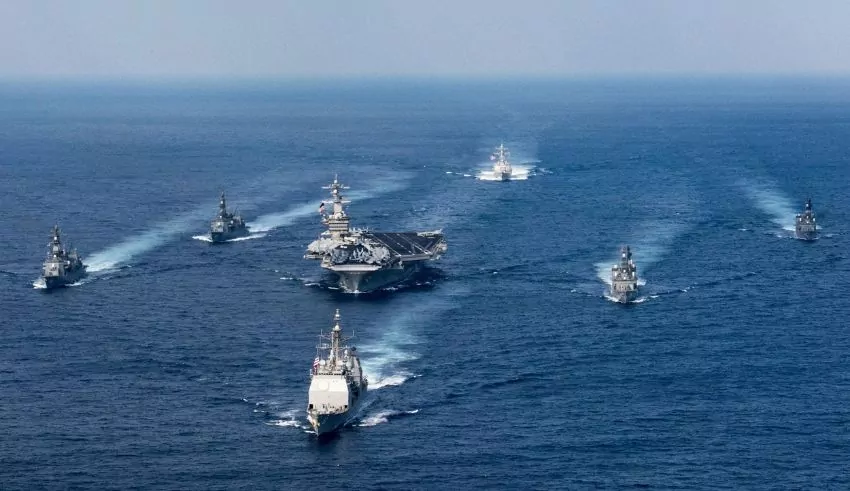

(C) South China Morning Post
In a display of commitment to maritime cooperation and regional security, the Philippines and the United States recently conducted a joint naval exercise in the West Philippine Sea. This bilateral sail activity signifies a shared dedication to enhancing interoperability and bolstering peace and stability in the Indo-Pacific region.
The naval exercise featured the Philippine Navy’s guided-missile frigate BRP Jose Rizal and the US Navy’s Arleigh Burke-class guided missile-destroyer USS Ralph Johnson sailing side by side in Philippine waters. Their synchronized maneuvers included a division tactics rehearsal, showcasing the readiness and compatibility of both naval forces.
The success of this joint sail activity underscores the robust maritime cooperation between the Philippines and the United States, established under the Mutual Defense Board-Security Engagement Board framework. This framework serves as the cornerstone for bilateral defense collaboration, reaffirming the enduring partnership between the two nations.
The primary objective of this naval exercise was to provide an opportunity for the Philippine Navy and the US Indo-Pacific Navy to refine their maritime doctrines and demonstrate their defense capabilities. This joint endeavor aligns with their shared commitment to upholding peace and security in the Indo-Pacific region, which has become increasingly vital in the face of evolving security challenges.
The Armed Forces of the Philippines (AFP) remains dedicated to capability development, ensuring its readiness to protect the nation’s sovereignty and territorial integrity. Participation in bilateral and multilateral activities contributes significantly to the AFP’s preparedness to address diverse security scenarios.
It is essential to distinguish between the joint sail activity and the planned joint maritime sovereignty patrols involving the Philippines, the United States, Japan, and Australia. The joint sail took place within the Philippines’ territorial waters and was not directed at any specific country. Its primary focus was on enhancing interoperability and defense capabilities.
Enhancing interoperability between the two naval forces holds paramount importance for external security and territorial defense operations. While this activity was not related to recent tensions in the South China Sea, it contributes to the overall readiness of both nations to address regional challenges.
The Philippines has consistently expressed concerns regarding China’s assertive actions in the South China Sea, including the construction of militarized artificial islands. An international arbitration ruling in 2016 invalidated many of China’s claims in the region. However, tensions persist, emphasizing the significance of regional security cooperation.
The joint sail activity reflects the Philippines’ and the United States’ unwavering commitment to regional stability, security, and cooperation. As both nations navigate the complex dynamics of the Indo-Pacific region, their joint endeavors serve as a testament to the enduring strength of their partnership and their shared vision for a peaceful and secure maritime environment.
Filipina teenager Alexandra Eala, 19 year old girl has achieved one of the biggest milestones in WTA season by defeating…
After waiting for a solid six years, Marvel Studios has divulged its next Avengers movie—Avengers: Doomsday. And the cast is…
Through software update Nothing OS 3.1 the company improves functionality of Phone (3a) and Phone (3a) Pro models. Global service…
China's electric vehicle (EV) giant BYD has officially taken over the global EV market, with a whopping revenue of 777…
The Japanese women’s curling team has a tough road to qualification for the 2026 Milan-Cortina Winter Olympics. Having silver and…
Rajasthan Royals vs Kolkata Knight Riders will be playing matchesin the Indian Premier League 2025 match at Barsapara Stadium, Guwahati…
This website uses cookies.
Read More